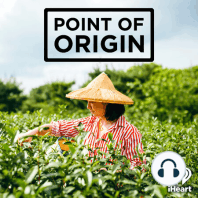57 min listen
Indigenous Foodways: The Decolonized Diet
FromPoint of Origin
ratings:
Length:
50 minutes
Released:
Apr 29, 2020
Format:
Podcast episode
Description
Recent media attention surrounding native indigenous foodways has brought to light what a decolonized diet means. This is in part thanks to individuals like Sean Sherman, the Sioux Chef, places like the Ohlone Cafe in Berkeley, Ca, Andi Murphy the host of Toasted Sister podcast and Brit Reed who works at Tulalip clinic. Through their work, and the work of many other indigenous people, they are revitalizing and bringing attention to the precolonial foods of their local indigenous tribes.On this episode of Point of Origin from Whetstone Magazine we explore how can we truly honor indigenous foodways, without it becoming the new, then forgotten trend? And why land and gathering are essential to indigenous foodways. Learn more about this episode. Learn more about your ad-choices at https://www.iheartpodcastnetwork.comSee omnystudio.com/listener for privacy information.
Released:
Apr 29, 2020
Format:
Podcast episode
Titles in the series (34)
Cider Coast to Coast by Point of Origin
